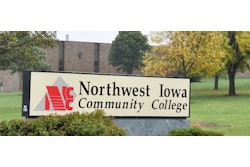Rural colleges and Tribal Colleges and Universities (TCUs) could be strengthened by federal and statewide efforts to make broadband connection a telecommunications utility, through better funding, and more support for student’s basic mental health care needs.
That’s the findings of the Association of Community College Trustees (AACT), who spent 18 months researching the issue at hundreds of institutions across the nation.
Now, thanks to continued funding from the Bill and Melinda Gates Foundation, ACCT is furthering this work by beginning a second phase, which aims to create a peer learning network; to create a system of technical support to help with grant applications; and to establish an online resource that other ACCT members and state and federal policy makers can use to access relevant information and resources.
Rachel Rush-Marlowe, senior program manager at ACCT, wants colleges to know that they do not have to fit the federal Department of Education’s definition of rural to be included in this next phase.
“We are not tied to one specific definition,” said Rush-Marlowe. “If you think this would be a good fit, please just reach out and we’ll figure out what that looks like for your institution.”
Rural community colleges often suffer from confusing or multiple definitions of the word “rural.” In the first phase of ACCT’s study, they found that only 260 institutions met the Department of Education’s established definition of rural—a broader definition could encompass up to 800 institutions.
Jee Hang Lee, senior vice president of ACCT said that this new phase will last 17 months, through November 1, 2022.














